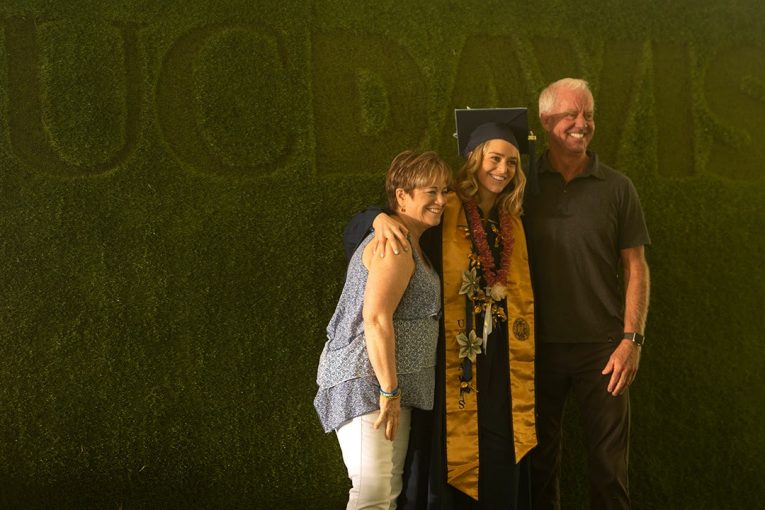

By Uriel Rivas
This year, the personal and social struggles of attending and graduating from college have made it difficult to justify its achievement. Graduation is the validation of the time spent—whether those years are spent studying or building social rapport—and is the validation of the time gained to pursue personal passions.
Graduation is the validation of the people who were met during the journey—whether it is from assignments or from social gatherings—and is the validation of support that will go past college. Graduation is the validation of where one has gone—whether for the campus’s sake or for their own—and is the validation of how the world is perceived for, most likely, the rest of one’s life.
In 2021, the lack of time, people and places due to the previous year’s pandemic has presented problems with current graduation procedures taking place in Davis and throughout California.
While cases of COVID-19 have been declining across the state, its effect on mental health has contributed to a negative worldview that disregards people, places and time. When writing about COVID-19 previously, an article from ABC News claimed that calls to the national “Disaster Distress Helpline” had an 891 percent increase compared to March 2019 due to the pandemic.
Furthermore, the quote from then-President Donald Trump—which is quoted from the same article—illustrated the current and ongoing effects of the pandemic, “Expect massive drug use, massive depression, mental depression, massive numbers of suicide.”
Interestingly, the American Association of Suicidology reported a decrease in suicides from 47,511 in 2019 to 44,834 in 2020. Boston University reported that depression had tripled in 2020 from 8.5 percent of adults experiencing depression symptoms prior to COVID-19 to 27.8 percent during mid-April of last year. Addiction Center reported 81,000 drug overdoses during 2020—the highest ever recorded in a year. Likewise, in 2021, the National Institute of Mental Health reiterated these outcomes and mentioned that individuals with schizophrenia were about 10 times more likely to contract COVID-19 and three times more likely to die from it.
These statistics play into the violence which has been occurring this year when it comes to the U.S. such as the Capitol insurrection in January, the prevalence of Asian hate crimes during March and the increasingly concerning shootings which have been occurring across the country since May.
Sophia Moskalenko, a researcher in social psychology at Georgia State University, looked at court records of QAnon followers arrested in the January 6 Capitol insurrection and found that 68 percent of those arrested had received mental health diagnoses. Furthermore, New York Daily News reported that out of the 23 people arrested for assaulting and harassing Asian people, 11 have been diagnosed or have been hospitalized.
Finally, the recent wave of gun violence can equally be attributed to mental illness. Not only do these recent crime waves demonstrate a newfound negative worldview that disregards minorities, government and lives, but they also demonstrate the general atmosphere in which these graduates are being brought into the world.
Through Jun. 13, UC Davis commencements have been taking place. Out of the six steps shared to ensure a smooth graduation ceremony, the distribution of only two guest tickets per graduate contributes to the lacking authenticity that this year’s ceremonies bring to them. It disregards the rest of the graduate’s family and disrespects the investment students have made to participate in this ceremony.
Even more so, these rules disregard the college payments students have made to attend online lectures which were tailored for in-person teaching and the social opportunities lost due to working remotely. It is this lost time that has been taken away from UC Davis graduates which will be regained without COVID-19 but with its prevalent aftershocks.
Uriel Rivas is a Linguistics major located in Davis, California. When he isn’t writing, he can be found walking around the city contemplating the nature of life and the boundaries between reality and fiction.
Support our work – to become a sustaining at $5 – $10- $25 per month hit the link:
